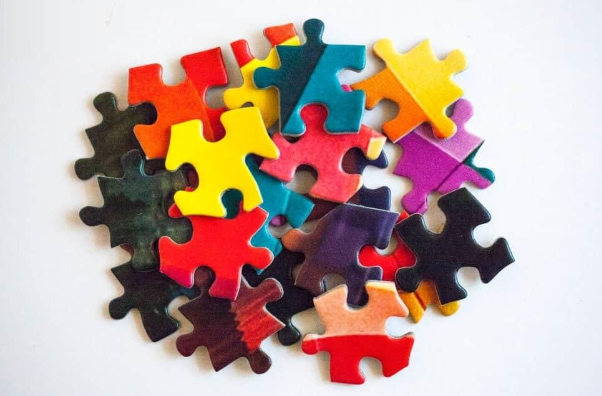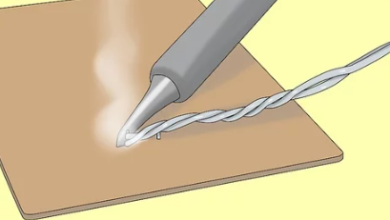How to Get Kids to Love Puzzles

Puzzles are awesomely entertaining and a lot of fun. It is a casual game that aids in the growth of important abilities. It sharpens your thinking skills and teaches you how to solve problems. To do this, only a few early-age puzzles of a moderate difficulty level are required. Your patience and desire for peace at work will grow as a result of this. Furthermore, solving puzzles improves intelligence by giving your brain a workout, which is suitable for everyone. Additionally, it is quite fascinating to solve puzzles at the same time. It improves your children’s memory and keeps their mental health in check. Therefore, it can be regarded as a necessary and worthwhile activity for both your children and the elderly members of your household.
Playing puzzles has many advantages, but you should also know which puzzles are best suited for different ages. You should pick puzzles for your children that will help them develop their cognitive abilities, mental well-being, critical thinking, problem-solving, and many other skills. However, children rarely complete puzzles because they prefer to play other games instead of engaging in peaceful playing. To solve this problem, you must choose puzzles that they will relish. Therefore, it’s important to consider the types of puzzles your kid will enjoy. To improve the child’s skills, you must list appropriate puzzles for his age.
This section will discuss how to prepare your kids for puzzles. To do this, we’ll cover some crucial information that will simplify your job.
Kids should love puzzles.
You can start by selecting engaging puzzles for kids to love puzzles, which helps in encouraging them to become more interested in puzzles overall. For example, young children adore cartoons, bright toys, and animals, among other things. You can therefore suggest puzzles involving animals, jigsaw pieces, colors, etc.
It can be challenging to get kids to love puzzles; for this, you’ll need to provide guidance that will inspire them to comprehend concepts and incorporate puzzles into their daily routines. To boost interest in puzzles, you should take the following actions:
- First, select good-quality puzzles to improve their skills.
You need to select some quality puzzles. Selecting puzzles is difficult, but if you look for “good quality ones,” it will be manageable. You can give them alphabet puzzles, number puzzles, and other eye-catching puzzles. These puzzles will aid in improving their abilities and developing their intellect. You can suggest them with easy picture puzzles.
Children should also be given puzzles featuring their preferred cartoon characters. This is because children have a strong bond with their favorite animated shows. They’ll become more intrigued by riddles as a result. They will therefore become better at solving puzzles as their interest in them grows.
- Wooden Animal Puzzles:
Only wooden animal puzzles can help children cultivate their love of puzzles. Everybody knows how much children enjoy their favorite cartoon characters, animals, and colors. Because of this, they always include them in their games. Your kids will also appreciate the wooden animal puzzles since they are of high quality and won’t deteriorate quickly.
Considering your children’s preferences, choose wooden puzzles. You could present them with puzzles that feature their preferred characters. Choosing which wooden animal puzzles they prefer is all that’s left to do before bringing those puzzles. Make sure your wooden animal puzzles are both attractive and made of high-quality wood.
- Will the number of pieces matter?
Pick games that are age-appropriate and will pique his interest in puzzles. Animal puzzles made of wood are also a great option. If you wish to start solving the puzzles, you must choose between two-piece and four-piece puzzles. In addition, you should select puzzles that require less digging. Children will find entertainment easily, and their ability to work will also improve with puzzles that require fewer pieces.
To keep yourself interested in the puzzles, you’ll need to continue raising the difficulty level. However, they will also enjoy participating in it if you occasionally increase the difficulty level.
- Join them during puzzles.
To increase their interest in puzzles, you can play puzzle games with them. This will support your child’s cognitive growth and give you the opportunity to teach them puzzle-solving techniques. If you do puzzles with them, they will definitely assist you and show curiosity in solving puzzles independently, thus developing their interest in puzzles. You can initially select simple puzzles as well. Then, you can suggest to your children some easy puzzles, such as wooden animal puzzles, nature jigsaw puzzles, and color puzzles.
- Select Number & Alphabetical Puzzles for Beginners
You have the option of starting with either an alphabet or a number puzzle. It will strengthen their abilities in addition to giving their brains a workout. Several number puzzles with two or more pieces are available for you to choose from. Additionally, you can add more pieces when your child is 1 or 2 years old. Alphabetical and number puzzles will serve the purpose of enhancing your child’s mental well-being and fostering the growth of his intellectual abilities. Additionally, it will help them remember things better. Finally, you can help them out by sending them high-quality number puzzles.
For more valuable information visit the website




